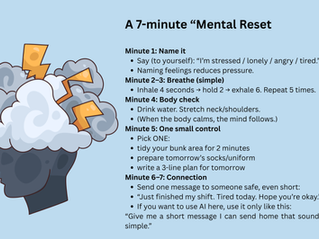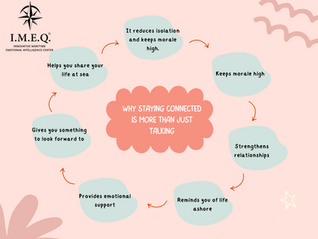Crew Health Advice: Haemorrhoids
- Feb 19, 2024
- 3 min read


Haemorrhoids have been identified as a cause of seafarer repatriation across various studies, and the UK Club continue to see claims as a result of this illness. Haemorrhoids (or piles) are abnormally enlarged veins in the walls of the rectum and anus. Internal haemorrhoids are situated on the bowel side of the sphincter muscle and appear only when straining to empty the bowels. External haemorrhoids are found in the region of the sphincter muscles and can normally be seen protruding from the anus as purple bulges.
In many cases, haemorrhoids do not cause symptoms, and some people may not even realise they have them. However, when symptoms do occur, they could include:
Symptoms
• bleeding after passing a stool (the blood is usually bright red)
• itching around the anus
• a lump hanging down outside of the anus, which may need to be pushed back in, after passing a stool
• a mucus discharge after passing a stool
• pain, soreness, redness and/or swelling around your anus
What causes haemorrhoids?
The exact cause of haemorrhoids is unclear, but they are associated with increased pressure in the blood vessels in and around the anus. This pressure can cause the blood vessels in the back passage to become swollen and inflamed.
Many cases are thought to be caused by too much straining on the toilet, due to prolonged constipation – this is often due to a lack of fibre in the diet. Chronic (long-term) diarrhoea can also make you more vulnerable to getting haemorrhoids.
Other factors that might increase the risk of developing haemorrhoids include:
· being overweight or obese
· age – as people get older, the body's supporting tissues get weaker, increasing your risk of haemorrhoids
· being pregnant – which can place increased pressure on your pelvic blood vessels, causing them to enlarge (read more about common pregnancy problems)
· having a family history of haemorrhoids
· regularly lifting heavy objects
· a persistent cough or repeated vomiting
· sitting down for long periods of time
Prevention
Haemorrhoid symptoms often settle down after a few days, without needing treatment. However, making lifestyle changes to reduce the strain on the blood vessels in and around the anus is often recommended. Lifestyle changes can include:
• gradually increasing the amount of fibre in the diet – good sources of fibre include fruit, vegetables, wholegrain rice, whole wheat pasta and bread, pulses and beans, seeds, nuts and oats
• drinking plenty of fluid – particularly water, but avoiding or cutting down on caffeine and alcohol
• not delaying going to the toilet – ignoring the urge to empty the bowels can make stools harder and drier, which can lead to straining when the bowel is finally emptied
• keeping the anus clean and dry
• avoiding medication that causes constipation – such as painkillers that contain codeine
• reducing weight (if overweight)
• exercising regularly – can help prevent constipation, reduce blood pressure and help lose weight
These measures can also reduce the risk of haemorrhoids returning, or even developing in the first place.
Treatment
Medication that can be applied directly (known as topical treatments) or tablets bought from a pharmacy or prescribed by
a doctor may ease the symptoms and make it easier to pass stools. Cold packs on the affected area can also be used to ease discomfort.
There are various treatment options for more severe haemorrhoids. Common hospital treatments include the following. You will be awake for the procedure but the area will be numbed. You should be able to leave hospital the same day.
• rubber band ligation: a band is placed around the piles to make them drop off
• sclerotherapy: a liquid is injected into the piles to make them shrink
• electrotherapy: a gentle electric current is applied to the piles to make them shrink
• infrared coagulation: an infrared light is used to cut the blood supply to the piles to make them shrink
If these treatments do not work, you may require surgery under general anaesthetic (where you're unconscious) to remove or shrink large or external haemorrhoids.
UK P&I Club are contributing Loss Prevention and Crew Health materials for the IMEQ Seafarers App as part of our established partnership. For further information on the UK P&I Club Loss Prevention and Crew Health activities please see www.ukpandi.com





































































































Comments